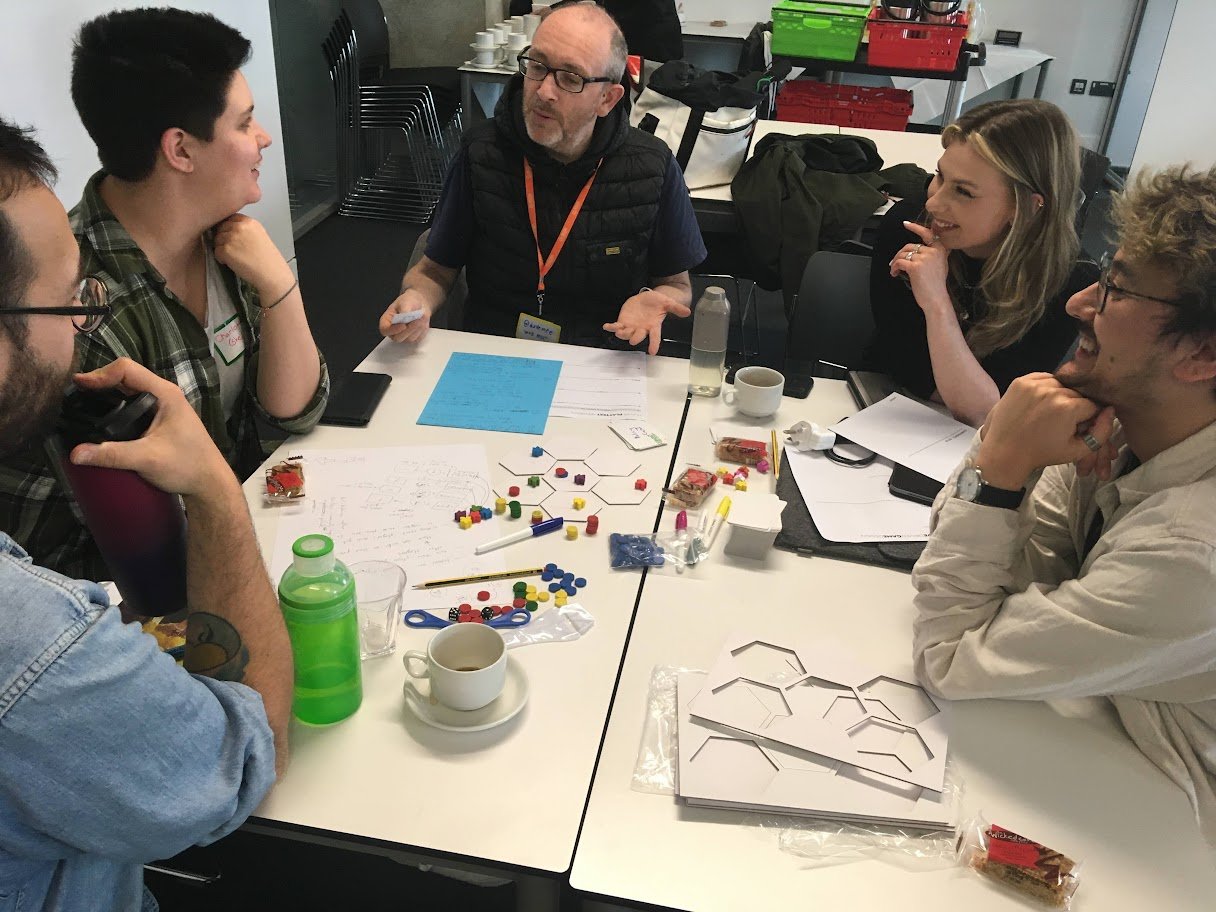Play, Hack, Collaborate: Games as Methodology
Last month, Man Met Game Centre member Charlotte Gislam organised a postgraduate symposium focusing on the idea that board games can be made to explore research projects and provide creative ways to visualise aims, methodologies, goals, and findings. This event began with a talk by Chloé Germaine and Paul Wake about their project ‘Games Imagining the Future’, which investigates how making, hacking, and breaking is a research process. This project is participatory, and members of the Game Centre have been working with young people to explore how this methodology of hacking games might support their understanding of the climate crisis, evaluate games as a tool through which they can explore and share their ideas about the climate crisis, and identify how games mobilise individual or collective action.
The rest of the day was facilitated by Matteo Menapace, a game-maker and game designer in residence at the Victoria & Albert Museum. Matteo explained to us his design process, from ideation through to prototyping, and then asked groups to think of hacks for the game Rock, Paper, Scissors. Afterwards, everyone was split into groups based on similar research topics or methodologies. Guided by Matteo, groups began thinking about how their research topics might figure as a board game, namely, how it might translate to the narratives and mechanics of a game. In total, four games were prototyped: a storytelling and prose writing game set in the pre-colonial Aztec Empire, a tactical space-rocking-hopping, a game about learning and casting spells, and a game where players took on the roles of different stakeholders in political life (Ministers, Activists, Spies, the Police, Reformers).
In this last game, for example, players had to use their influence (represented through tokens) to take over the political sphere (the game board). During rounds, players were encouraged to make (and possibly break) alliances with the other stakeholders; for example, in the playtest, the Activists asked to borrow the large pool of influence the Ministers began with to slander the Spies and wipe them from the board. However, the key to the game was that players' influence was always accrued regardless of whether they were in control of any space on the board. So, even if you successfully removed someone from the board, they would soon be back and maybe look for alliances against you.
Watch the full video below:
Thanks to Chloé, Paul, Matteo, and Charlotte for making this day happen!





